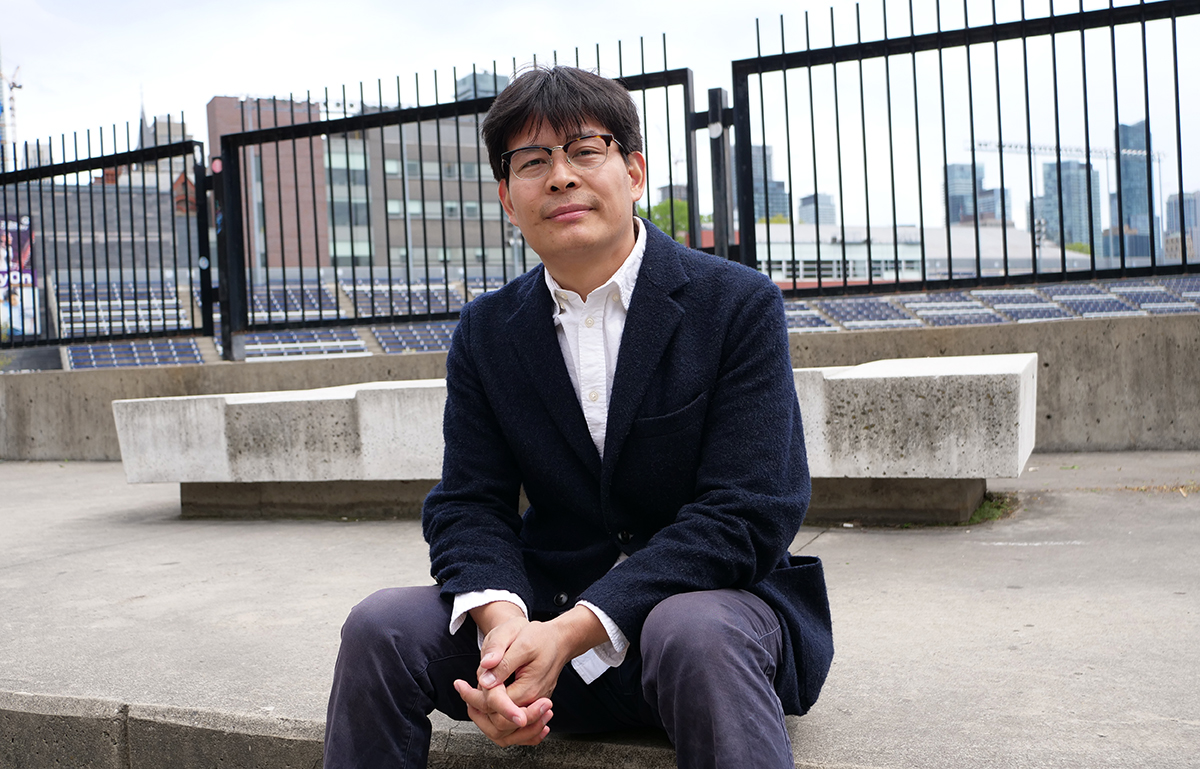From the Himalayas to Academia: OISE grad crosses convocation stage with a fresh perspective on education and cultural identity

Nan La’s story begins in a small farming village in Tibet.
Growing up, he was curious about the world beyond the mountains surrounding him and saw education as the gateway to it.
However, setbacks followed. He dropped out of school at 17 to support himself financially. As soon as he raised the cash, he promptly returned to school, graduated, and completed college and a graduate degree in Tibetan studies at Qinghai Nationalities University.
Despite his extensive schooling, however, Nan La never felt fully satisfied with his educational experiences, which left him yearning for more.
This is why his convocation day on June 7 will feel so special. His journey to a master of education in social justice education at OISE, he says, has left a profound mark on him and has transformed how he views the world.
Finding newfound clarity
After completing his graduate studies, Nan La began working as a research assistant for Western doctoral students conducting research in Tibet. He says that these experiences significantly broadened his outlook. “When I was exposed to the theoretical frameworks used by Western researchers, it deepened my understanding of social and political issues,” he said.
Realizing that there was much to be learned from diverse education systems, Nan La says that he decided to pursue OISE studies to gain a deeper understanding of his experiences in the Chinese education system as an Indigenous Tibetan.
As soon as his OISE coursework began, he knew the next two years would be transformative.
“As someone who only had access to limited studies of literature and history within the educational frameworks of Tibet and China, which often lean towards positivism, I found the critical theories at the University of Toronto to be both inspiring and challenging.”
Nan La delved deeply, exploring a wide array of new social theories and worldviews – Western political philosophy, postcolonial theory, and gender theory. Nan La found particular resonance in Paulo Freire’s exploration of education as a tool for liberation from oppression and colonialism. This journey enabled him to articulate his schooling experiences with newfound clarity.
Nan La says that he found that the mainstream education system in China prioritized grades as the sole measure of academic ability, creating a hyper-competitive environment that often sidelines well-being and compassion. Additionally, he felt a sense of isolation due to the lack of culturally relevant content in the curriculum.
"The education system in Tibet doesn't cultivate the unique knowledge each student brings. Instead, it focuses more on modern Han Chinese cultural values, while Tibetan knowledge, as well as the knowledge that students gain from their families and communities, are devalued," he says.
Curating connections, including with himself
For Nan La, OISE is the educational journey he had been searching for.
Feeling a strong sense of belonging, he was pleasantly surprised by the ethnic, cultural, and religious diversity among his classmates, and through their varied perspectives and life experiences.
Nan La is grateful for the mentorship of Professor Njoki Wane, whose warm support extended beyond academic matters to his overall well-being. Despite holding the position of chair in the Department of Social Justice Education, Nan La was struck by her leadership approach, which focused on “cultivating growth rather than mere administration.”
He also forged meaningful connections with professors like Dr. Jack Miller, whose focus on holistic education and spirituality deeply resonated with him. Miller's classes helped Nan La reconnect with his cultural and spiritual roots, inspiring him to write an article on contemplation and practitioners that is slated for publication in a peer-reviewed journal.
“Nan La is one of the most outstanding masters' students I have encountered in my teaching and I am sure he will do well in whatever he chooses to do now,“ says Miller, who teaches in the department of Curriculum, Teaching and Learning. “I have not talked to him about his future but I encourage him to pursue doctoral studies.”
Buoyed by Miller’s encouragement and his OISE journey, Nan La is now setting his sights on new horizons and applying his education to social transformation. He intends to pursue doctoral studies, focusing on the role of storytelling in Indigenous Tibetan culture, its impact on learners in school settings, and its role in fostering imagination and creative thinking in knowledge production.